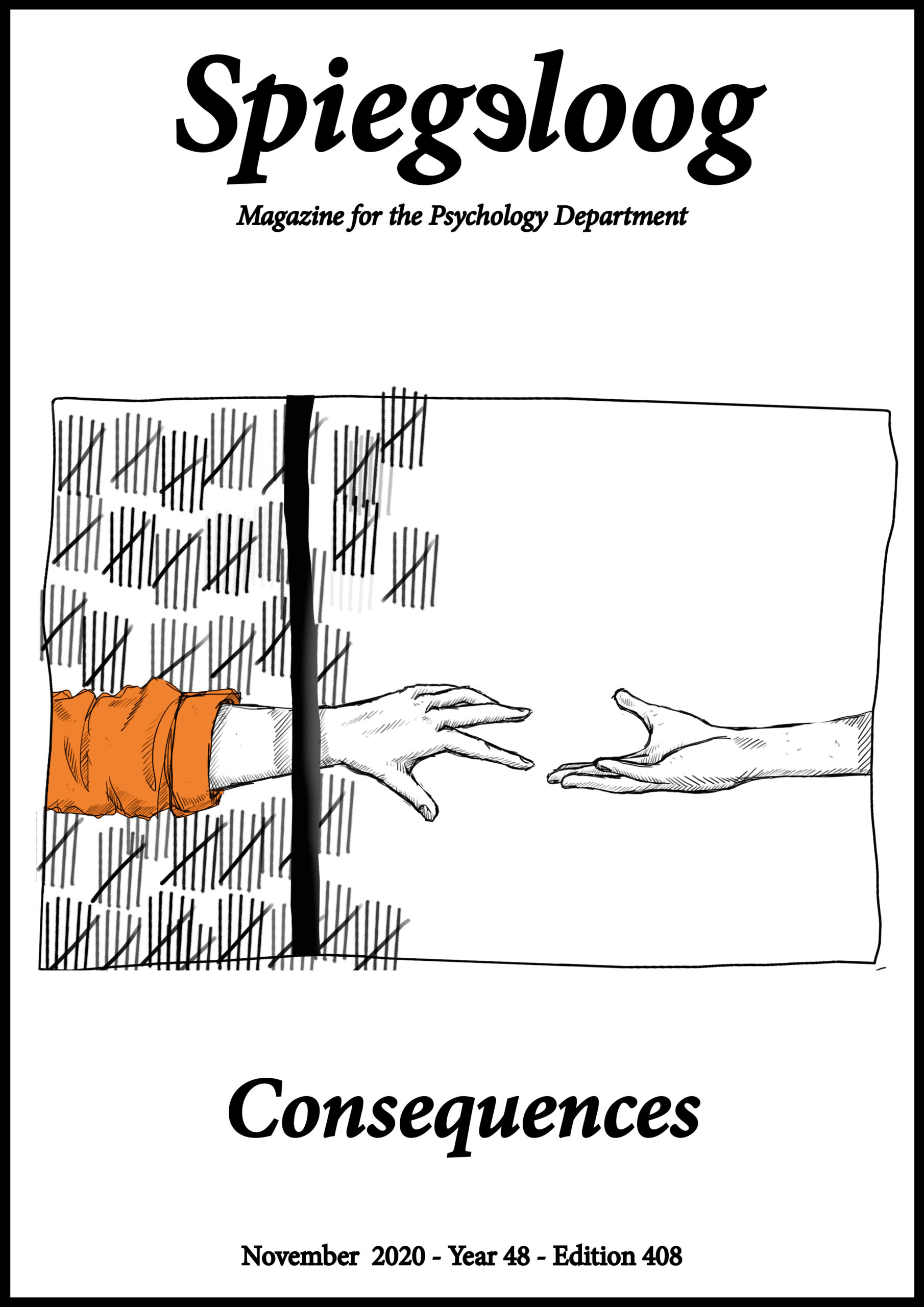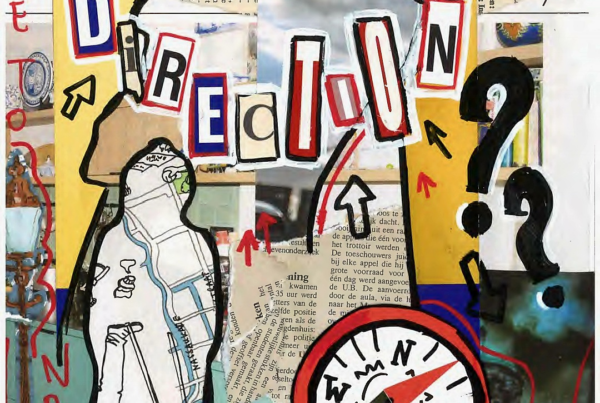

Sometimes it feels to me that science is like a fortress to people who are not directly contributing to it, unknown and a little bit mysterious. For instance, people in my hometown pass the time without giving much thought to science, only to hear about a couple of breath-taking science discoveries once or twice a week in the news. Arguably, you can say that my hometown is just ignorant and lives in oblivion, being just an ugly outlier in the world of science consumers. However, living my second year in the Netherlands, I found that the situation is not very different here. If people are not part of knowledge institutions such as universities, they don’t seem to know about science that much and neglect to exercise critical thinking so central to science.
Is it because natural and social sciences seem inaccessible to non-scientists? With all the terms, definitions and systematic thinking it involves, as well as the often difficult, confusing formulation of findings (think of the definition of confidence intervals), keeping up with the stream of scientists’ thoughts can be a very hard endeavour for non-scientists. Admittedly, if this is the case, how can we change it? How do scientists make and keep people interested in science? Potentially, misinformation could be in decline if only we could solve this issue.
The pandemic seems to be a unique place to start, since it is a breeding place for beliefs and opinions. People change their minds constantly as they are bombarded with uncertainty about the future and all the information that the media provides. Research shows that the beliefs of people in formative years (20 to 25 years old) can be especially affected by pandemics, since the worldview of these individuals is still crystallizing (Aksoy, Eichengreen, & Saka, 2020). If only we could spark the interest in science in young people so that they are more willing consumers of science! Unfortunately, some research shows that after pandemics, people are on average more interested in science, but less so in the daily work of scientists, and even regard scientists as untrustworthy (Aksoy, Eichengreen, & Saka, 2020). Therefore, it seems that people look up to science when forced to be in contact with it to make informed decisions about health (i.e. pandemics), but they for some reason don’t look up to scientists themselves. This is a pity, since it is the scientists who are the gate to science for non-scientists, and if people are not interested in scientists’ work, how can they be more educated about science for the future?
In my opinion, people’s perceptions of scientists are in our hands. If we want to increase our trustworthiness in the eyes of non-scientists, and gain their support for our work, I think presentation is the key. We should find ways to communicate science in a language that is non-complicated and easy to comprehend for the non-scientist wider public, while trying to keep the language as precise as possible. Rephrasing scientific findings so that everyone can understand. Arguably, a less complicated language can have its effects only when people are actually motivated to learn more about science and are open-minded about finding out new information. There is no point in adjusting how scientists communicate about science if people selectively look up evidence that supports their existing worldview. However, it can be argued that this pandemic marks a point in time when people are motivated to search for truth – since what they believe can have consequences on their health. Therefore, amidst all the terrifying consequences of this pandemic, there is one we can embrace – people turning to science for information and for help. How wonderful would that be if we could break down the fortress of science with our hammer of clear and ‘user-friendly’ language.
References
– Aksoy, C. G., Eichengreen, B., & Saka, O. (2020). Revenge of the experts: Will COVID-19 renew or diminish public trust in science? (EBRD Working Paper No. 243.) Retrieved from European Bank for Reconstruction and Development website: https://www.ebrd.com/publications/working-papers/revenge-of-the-experts

Sometimes it feels to me that science is like a fortress to people who are not directly contributing to it, unknown and a little bit mysterious. For instance, people in my hometown pass the time without giving much thought to science, only to hear about a couple of breath-taking science discoveries once or twice a week in the news. Arguably, you can say that my hometown is just ignorant and lives in oblivion, being just an ugly outlier in the world of science consumers. However, living my second year in the Netherlands, I found that the situation is not very different here. If people are not part of knowledge institutions such as universities, they don’t seem to know about science that much and neglect to exercise critical thinking so central to science.
Is it because natural and social sciences seem inaccessible to non-scientists? With all the terms, definitions and systematic thinking it involves, as well as the often difficult, confusing formulation of findings (think of the definition of confidence intervals), keeping up with the stream of scientists’ thoughts can be a very hard endeavour for non-scientists. Admittedly, if this is the case, how can we change it? How do scientists make and keep people interested in science? Potentially, misinformation could be in decline if only we could solve this issue.
The pandemic seems to be a unique place to start, since it is a breeding place for beliefs and opinions. People change their minds constantly as they are bombarded with uncertainty about the future and all the information that the media provides. Research shows that the beliefs of people in formative years (20 to 25 years old) can be especially affected by pandemics, since the worldview of these individuals is still crystallizing (Aksoy, Eichengreen, & Saka, 2020). If only we could spark the interest in science in young people so that they are more willing consumers of science! Unfortunately, some research shows that after pandemics, people are on average more interested in science, but less so in the daily work of scientists, and even regard scientists as untrustworthy (Aksoy, Eichengreen, & Saka, 2020). Therefore, it seems that people look up to science when forced to be in contact with it to make informed decisions about health (i.e. pandemics), but they for some reason don’t look up to scientists themselves. This is a pity, since it is the scientists who are the gate to science for non-scientists, and if people are not interested in scientists’ work, how can they be more educated about science for the future?
In my opinion, people’s perceptions of scientists are in our hands. If we want to increase our trustworthiness in the eyes of non-scientists, and gain their support for our work, I think presentation is the key. We should find ways to communicate science in a language that is non-complicated and easy to comprehend for the non-scientist wider public, while trying to keep the language as precise as possible. Rephrasing scientific findings so that everyone can understand. Arguably, a less complicated language can have its effects only when people are actually motivated to learn more about science and are open-minded about finding out new information. There is no point in adjusting how scientists communicate about science if people selectively look up evidence that supports their existing worldview. However, it can be argued that this pandemic marks a point in time when people are motivated to search for truth – since what they believe can have consequences on their health. Therefore, amidst all the terrifying consequences of this pandemic, there is one we can embrace – people turning to science for information and for help. How wonderful would that be if we could break down the fortress of science with our hammer of clear and ‘user-friendly’ language.



